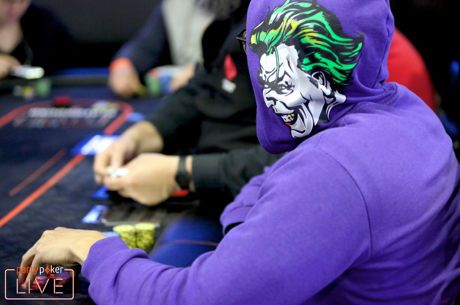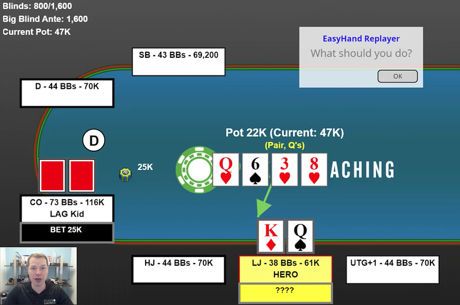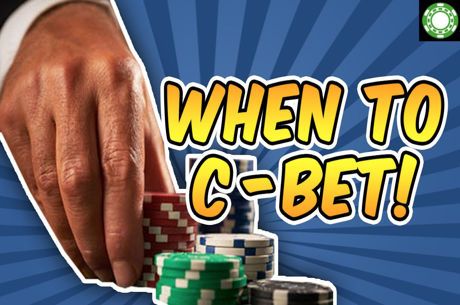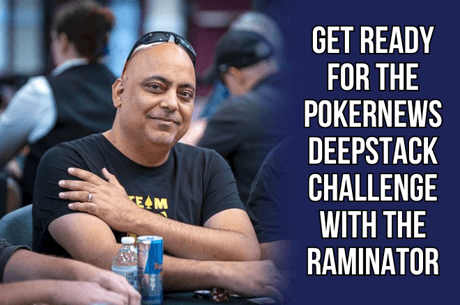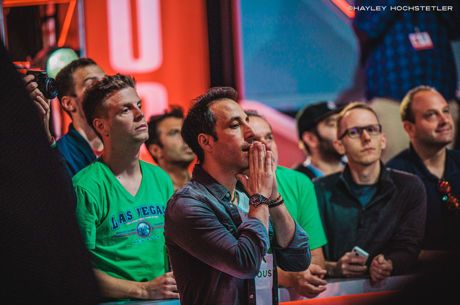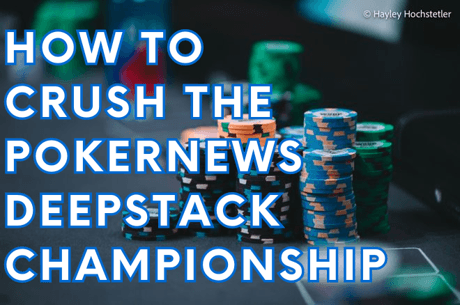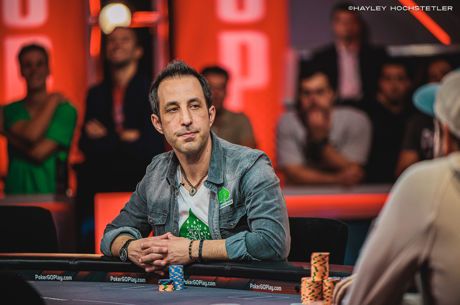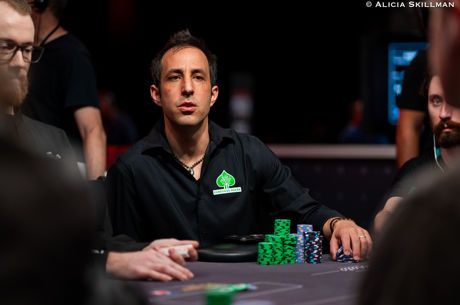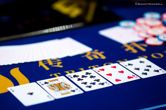Checking Good Hands to Let Opponents Give Themselves Away

Sometimes in the softest tournaments, opponents can give away the strength of their hand through bet sizing and actions. Consider checking some good hands when out of position to avail them of this opportunity, and react accordingly.
The downside is losing value you could have gotten by betting yourself, as well as giving up the chance for you to control the size of the betting. But the upside is you can play a wider range of hands for value against a weak range. A hand that was a two-street hand can become a three-street one.
Let’s take a look at a hand from on online tournament — a $20 "deep-stacked" freezeout — that illustrates an example of checking in order to let an opponent bet and thus give away information useful to us going forward.
Continuation Betting Is Not Mandatory
From under the gun with A♣K♦ we raise to 400 at 100/200/20 and are flat-called by the player two to our left, as well as the big blind. With 1,460 in the pot and three players involved, the flop comes A♦10♠6♠. The big blind checks and the hero in this hand checks as well. When the player in position bets 400, the big blind gets out of the way and it comes back to our hero.
First off, our betting the flop as the initial raiser is not a requirement. Some low stakes players would begin here with a bet out of a sense of obligation. They feel they will be continuation betting this flop often, so when they have a strong hand like top pair, top kicker, they should do likewise.
Three-way to this flop, however, with a flush draw on board, our hand is not going to be a three-street hand as often as one would think, especially beginning with a continuation bet. We will sometimes be called in two spots on the flop, the turn could be any spade, any Broadway card, or a ten, and we will have to slow down. Even heads-up, when the board runs out in a coordinating fashion, we will potentially have to weigh our options to slow down. In short, checking the flop is not the end of the world.
After we checked the player in position bet and the big blind folded. As the UTG player with ace-king we should take this as a signal that our hand is best most of the time. But as outlined above, this board is potentially treacherous. Check-calling to trap allows every gutshot to realize its equity for a price our opponent sets while allowing every value hand to show down when we would rather put money into the pot against it.
Therefore check-raising is the way forward. But this choice is in part predicated on our decision to read weakness into our opponent’s bet size (400 into 1,460).
Money Piling In
Hero check-raises to 1,400, leaving 7,300 behind. Certainly going bigger here could be better. It is unlikely check-raising to a smaller size accomplishes very much. The player in position calls, which he should be doing with his entire continuing range in all likelihood.
Many players at lower stakes will be tempted to reraise back on this flop with ace-ten or pocket sixes. When they do not take this action, we cannot confirm that our hand is the best hand. Even so, when the opponent calls the check-raise our rating of ace-king in this spot strengthens (much as it did when he led for 400).
The turn is the 3♦, making the board A♦10♠6♠3♦. There is not much choice here but to go for value. All the things we wanted to avoid on the flop by check-calling can happen again if we check the turn after having check-raised before. Gutshots can get a free card. Value hands can get closer to showdown. Better hands than ours will bet, anyway. We have shown a type of strength that we should not expect to be bluffed at much if we check.
So hero bets 2,800 into 4,260. Villain min-raises to 5,600. What now?
Dealing With the Unexpected
Villain has capped his range in a number of ways on the flop, and the turn card is unlikely to have improved his to a hand better than ours unless he has exactly Ax3x. We are behind this hand, but with nine outs (three kings, three tens, three sixes) we are far from dead. Perhaps more importantly, we have little money behind — just 4,500. We have to decide to rate our hand now. Is it best often enough?
It is difficult to put villain on an exact hand, because not much makes sense. If he wanted to protect a hand like Ax6x, he should shove this turn. There is too much danger in laying the best price. Even if he had 10x10x, shoving would seem better than min-raising. We can’t be sure he wouldn’t play Ax6x this way for that reason, but again we can discount it when rating our hand.
In the end, when villain min-raises here in a small stakes tournament, we cannot be thrilled, but we should have faith in the more reliable information obtained previously on the flop. He stabbed for 400, and he did not three-bet the flop when we gave him the opportunity.
In the actual hand hero shoved and villain called off with 9♦8♠. He had just a gutshot masquerading as a monster on the turn, but he had neglected the fact that he had taken that mask off on the flop. The river bricked, and hero collected a nice big pot.
Certainly hero must feel like he got the max out of AxKx. But perhaps a lesson to learn is that AxQx could have gone for that same value, in the same way.
In any case, the main point here is to recognize how checking the flop rather than c-betting provided an opponent the chance to give himself away. (And ultimately his chips, too!)

